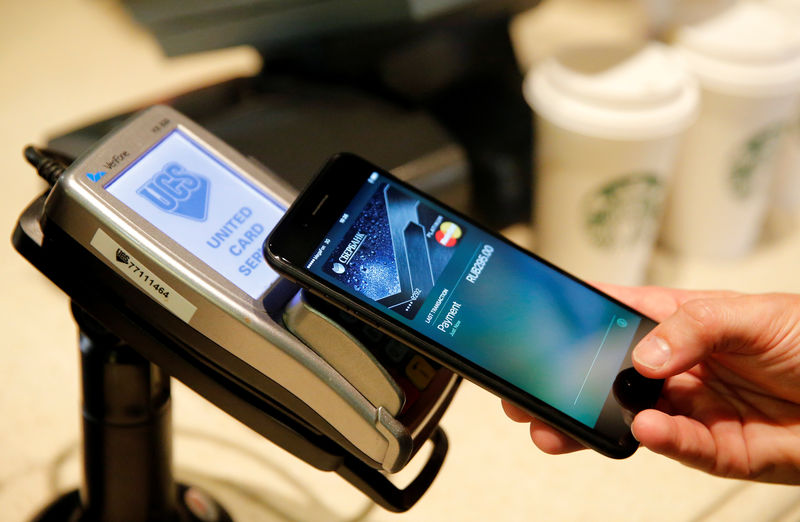By Geoffrey Smith
Investing.com -- France’s two biggest payments companies, announced the creation of a new European champion in the space on Monday, after Worldline (PA:WLN) agreed to pay some 7.8 billion euros ($8.6 billion) for Ingenico (PA:INGC).
While that’s true in a narrow sense – the two companies had total revenue of 5.3 billion euros in 2019, according to figures they both released on Monday – the reality is a little more prosaic: Ingenico is paying the price for not moving fast enough beyond its legacy business – the card payment terminals seen in shops all over Europe – and into the online retail payments space.
Although Ingenico has made progress in the last year – organic sales growth of 10% actually exceeded Worldline’s 6.9% - the perception is still that it is not in the hottest part of a sector that is still growing rapidly. Ingenico stock was up only around 10% from its levels of five years ago at Friday's close.
One of the reasons Worldline is buying Ingenico, rather than the other way round, is that Worldline stock is valued at over four times sales, more than twice the valuation of Ingenico stock. That has given Worldline the luxury of being able to offer its stock as part of the deal.
The relative valuations suggest not too much should be read into the 4.6% drop in Worldline stock on Monday. The 17% premium it’s offering over Ingenico’s Friday close is not egregious by the usual standards, and easily justifiable, if one extrapolates the convincing rebound that Ingenico stock has had in the last 18 months as its diversification has started to bear fruit.
However, the combined company will have some work to do if it wants to match the valuation of Adyen (AS:ADYEN), the Dutch-based company that floated in 2018. It was still growing sales at a clip of 64% in the six months through last June, thanks to strong links with likes of Uber (NYSE:UBER), Spotify (NYSE:SPOT) and Booking (NASDAQ:BKNG), all big beasts in online payments.
At 25 billion euros, Adyen is still worth over 25% more than the combined value of Worldline-Ingenico. Even Germany’s Wirecard (DE:WDIG), after all the knocks it has suffered due to governance concerns over the last two years, is still valued at only a touch less than the new French giant. Again, that’s due to its relative strength in areas where growth is faster, although Wirecard’s strength is regional (Asia) rather than sectoral.
Bulking up is a process that will give the French companies greater clout vis-à-vis smaller competitors (Italy’s Nexi (MI:NEXII), for example, rose 3.5% on Monday as market participants added a little takeover premium to the stock). But for the term ‘champion’ to mean anything, the combined company will have to show that it can grow at least as fast as the broader sector. It still has some convincing to do.
